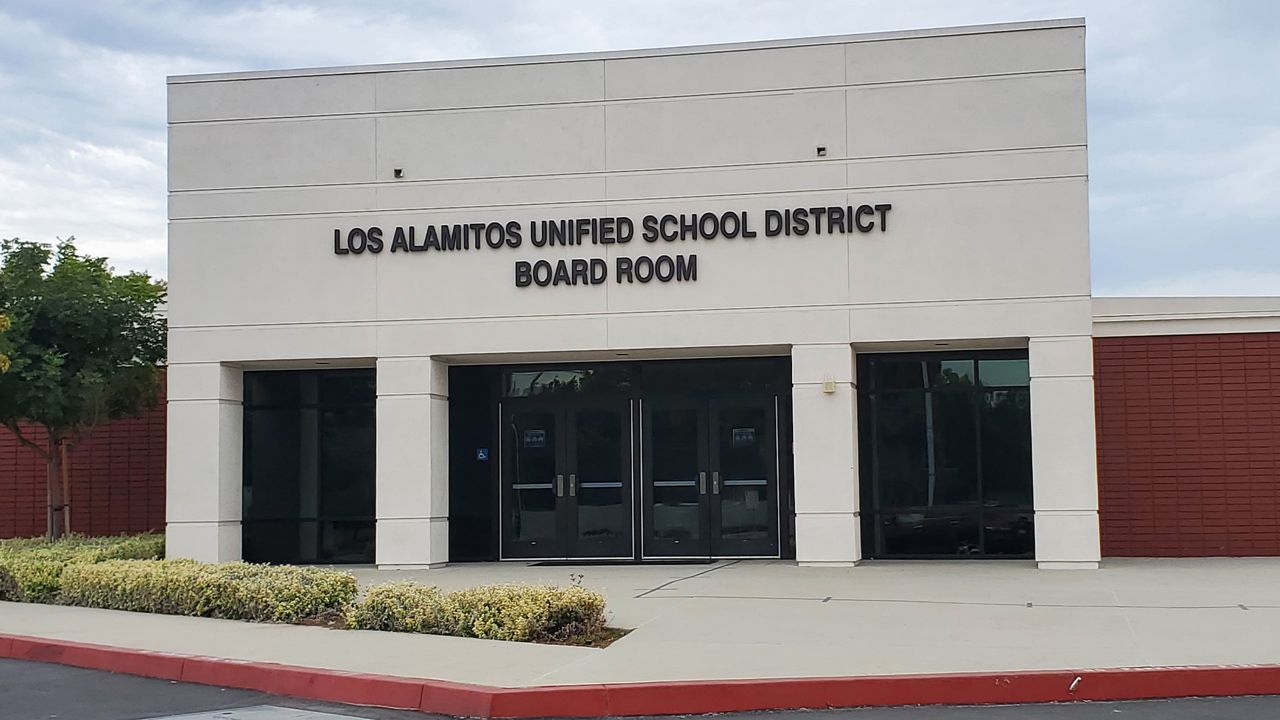LOS ALAMITOS, Calif. — For more than an hour, one by one, Los Alamitos School District students and parents spoke passionately about the importance of the district's new ethnic studies curriculum.
Nico Muench-Casanova, a sophomore, stated at Tuesday's Los Alamitos Board of Directors meeting that it would allow students to learn "about the different histories of these cultures [and how they] are part of the fabric of this country."
Another student said the ethnic studies elective could allow students to see others in a new light and stop racism.
But a few others see the board's new ethnic studies curriculum as another form of critical race theory and claim that it could lead to white shaming, divisiveness in the student body and pit one race at the expense of another.
Some see critical race theory, an academic movement that examines the influence of race in law, culture, business and politics, as divisive.
"It is infused with critical race theory," said Harriet Reid regarding the ethnic studies curriculum to the Board on Tuesday. "The language and vocabulary used in critical race theory can be easily spotted once a person knows what they are looking for."
The spat over the district's ethnic studies curriculum and social justice standards has turned Los Alamitos into a political battleground, pitting district students, parents and administrators against other parents and conservatives about what the district should and should not teach students about U.S. history.
The Los Alamitos School District is not alone.
In the wake of the rise of anti-Asian hate crimes and the Black Lives Matter movement, school districts in Orange County weigh whether to incorporate ethnic studies as part of their education curriculum, while others weigh it as a graduation requirement.
In March, the California Board of Education recently approved an Ethnic Studies Model Curriculum for K-12. The state curriculum is not making the new curriculum a requirement for school districts to adopt. Rather, they've left it up to each school district to decide. Los Angeles Unified School District and Fresno Unified School District will introduce ethnic studies, and make it a graduation requirement, next year.
Los Alamitos School Board Superintendent Andrew Pulver said Los Alamitos High School's ethnic studies elective is optional and only for its high school's juniors and seniors. It is not a graduation requirement. The district's social justice standards for K-12 are also a guidepost for teachers and administrators.
He stressed that the curriculum and social justice standards are not based on critical race theory.
He said the board's goal is to "bring students and communities with diverse backgrounds together by affirming their identities, stories and contributions."
"Students should be provided with opportunities to gain an understanding of, and respect for individual and cultural differences, live enriched lives and be better prepared to work in a global economy and live cooperatively in a diverse society," Pulver wrote in a newsletter to parents before the board meeting.
Still, since the board passed the ethnic studies curriculum in February, some concerned parents and outside groups have railed the district's plan to introduce ethnic studies and social justice standards to students this fall.
At one school board meeting, a person held up a sign that read "Ethnic Studies Teaches Hate."
Earlier this month, at a non-district Town Hall about the curriculum, one speaker openly told the crowd to confront the school board members outside of the board meetings.
"We're not seeking common ground from these people," said Arthur Schaper, an organizational director at MassResistance, described as an anti-family, anti-LGBT activist organization. "This is filth that needs to be removed entirely. We need angry parents and relentless troublesome citizens that won't settle for concessions."
"You need to confront these people outside the school board," he added. "We don't take the high road. You need to be confrontational."
The contentious town hall led Pulver to write an email to district parents to clear up misunderstandings and misinformation being spread about the curriculum.
"Recently, special interest groups with their own agendas have attempted to discredit this course by spreading misleading and false information about the intent, design, and learning outcomes of the course," Pulver wrote.
Pulver added that the group's claim of 'white shaming' students is unfounded and inaccurate.
"It is shameful and deceitful to imply that Los Alamitos Unified is attempting to pit students of differing ethnicities and racial backgrounds against one another," he wrote.
At the board meeting on Tuesday, where the board unveiled the ethnic studies curriculum, many supporters applauded the Board members for incorporating ethnic studies at Los Alamitos High School.
Jack Chang, a junior at Los Alamitos High School, said the school's U.S. history textbook often overlooks the contributions of minorities such as Mexican-American labor leaders Cesar Chavez and Dolores Huerta. The U.S. history books also omit significant events.
"In order for students to learn about the countless figures and events that our current curriculum overlooks, you must include ethnic studies as an elective course at Los Alamitos High School," Chang said.
"We are a culturally diverse community," Chang said. "In order for us to understand each other, and where we come from, we must be given the opportunity to learn about each other's stories, experiences, and shared history."



